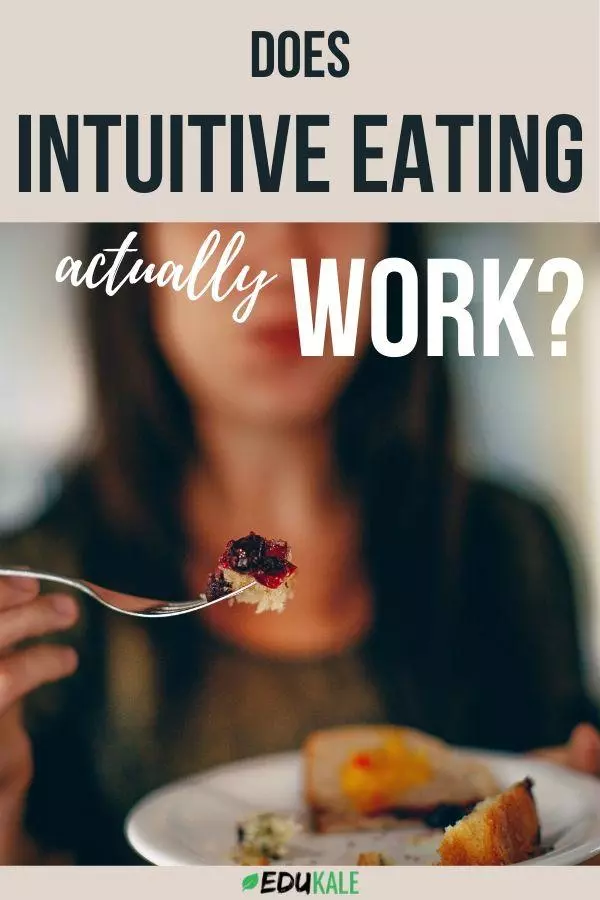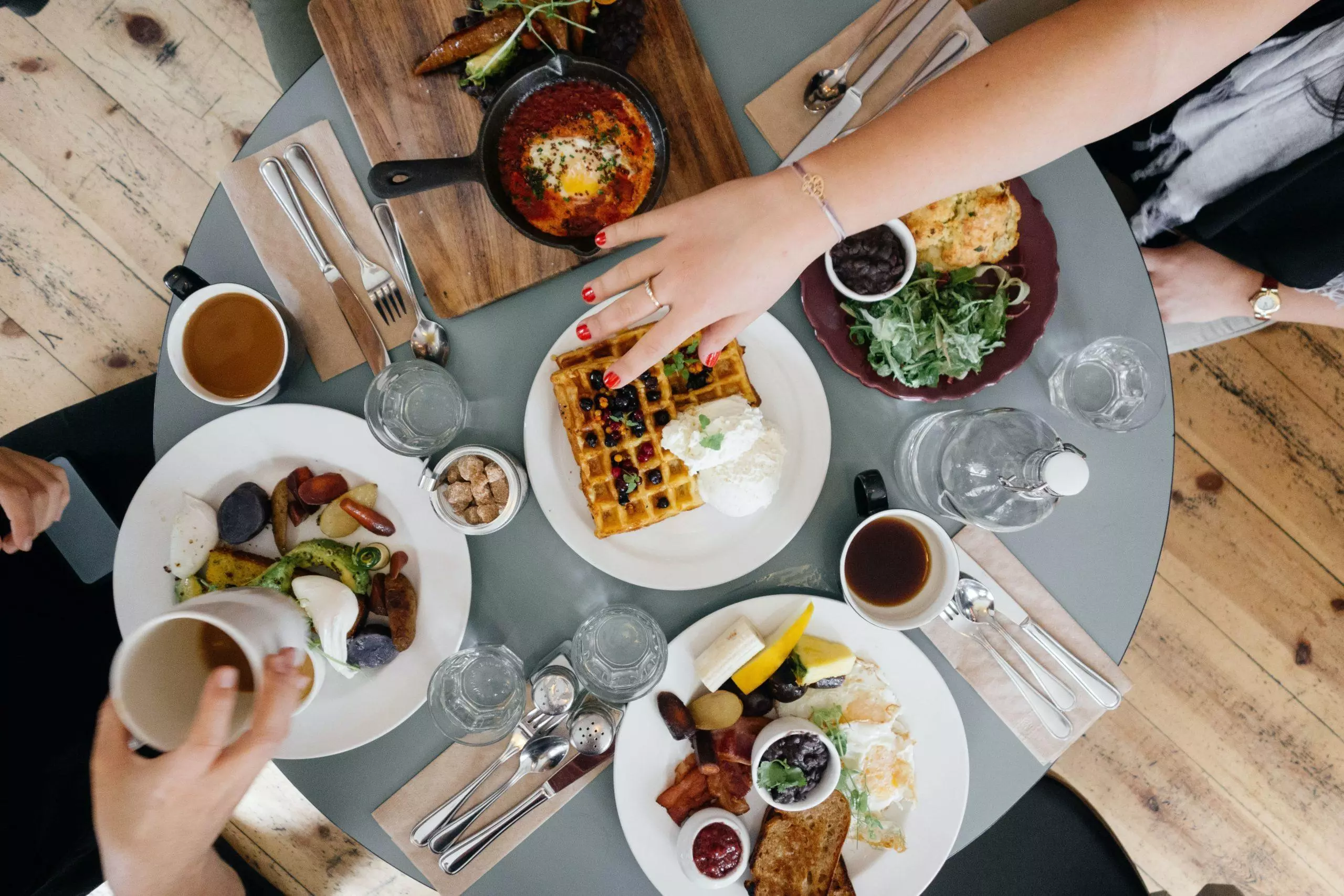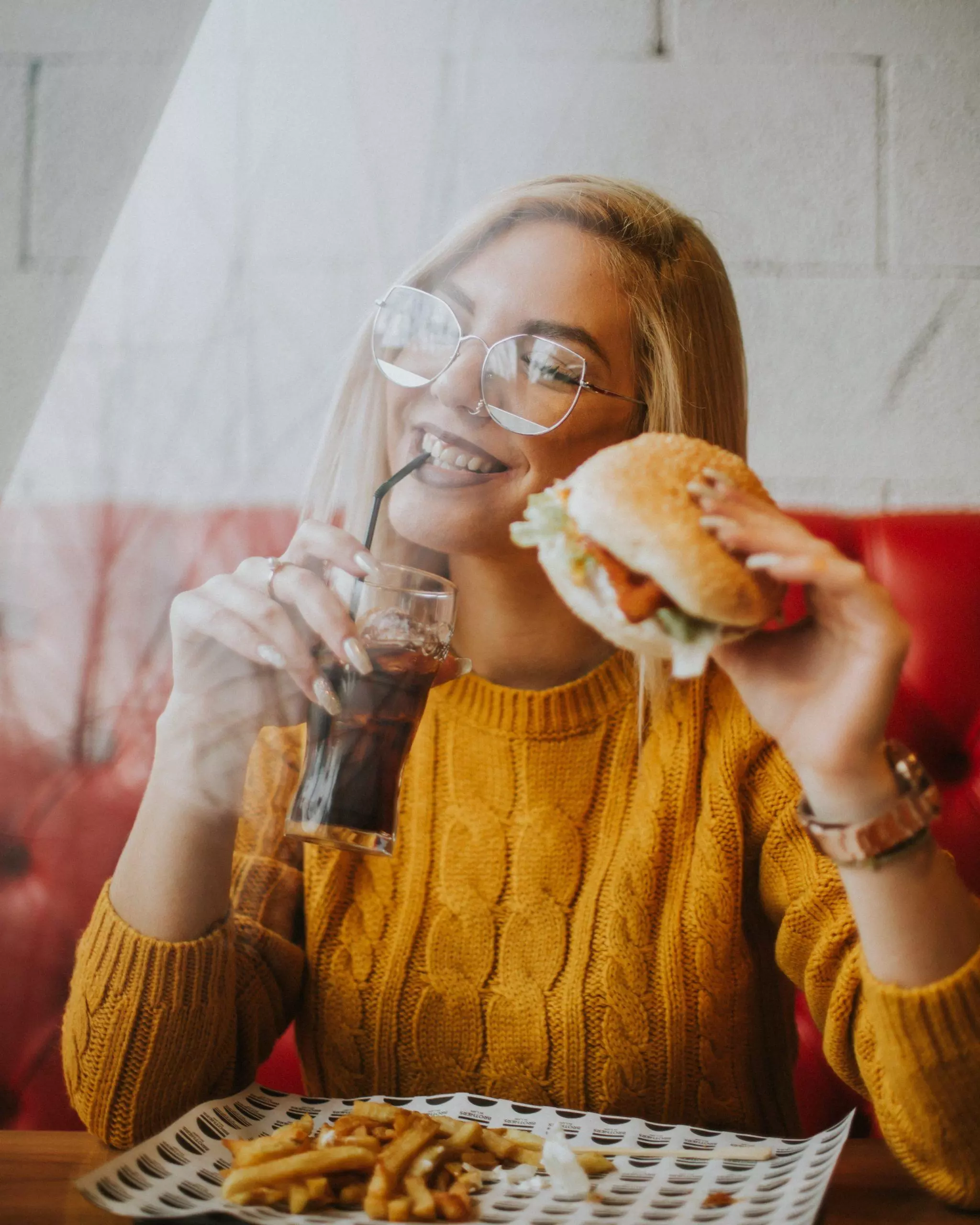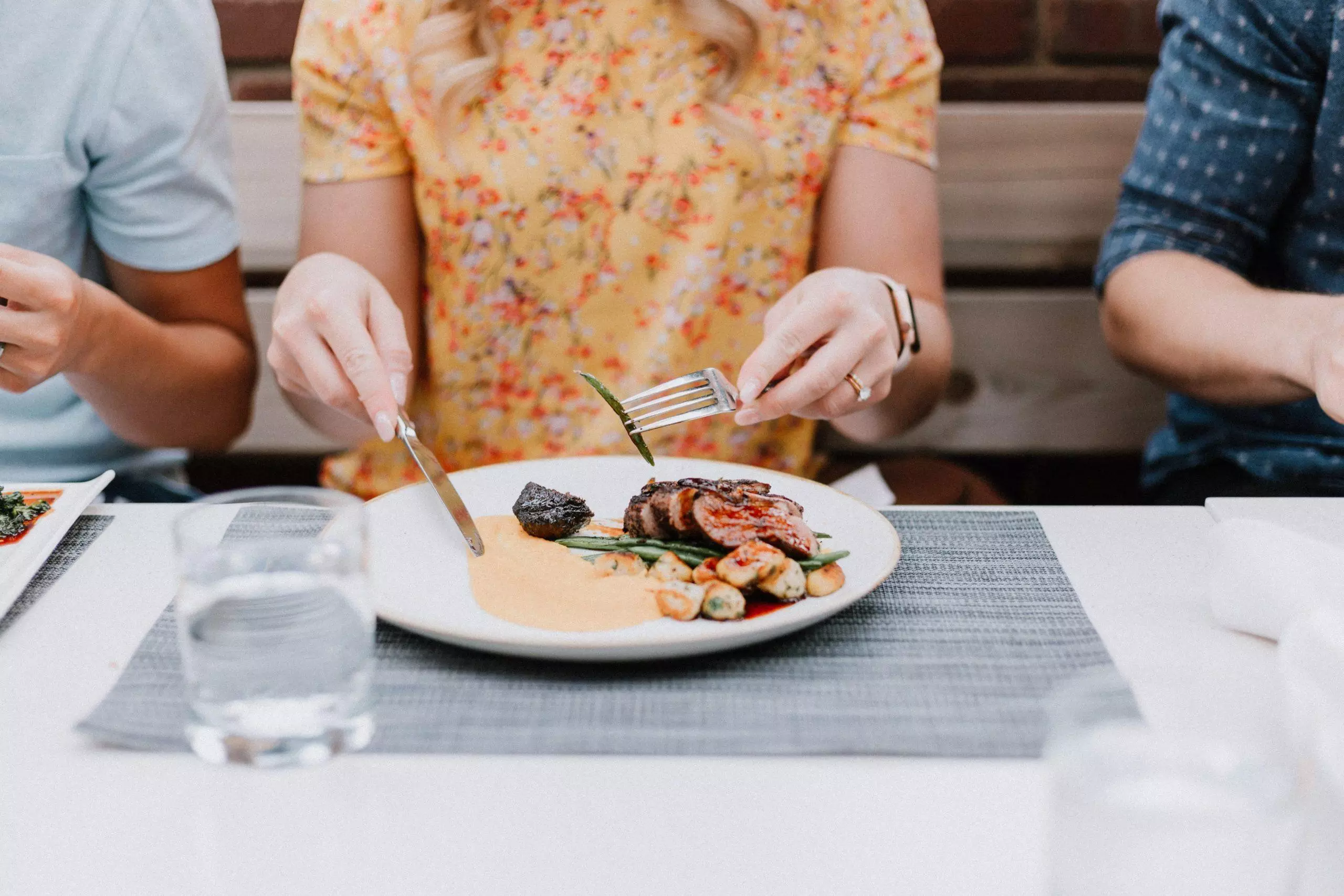This post contains affiliate links from which I may receive a small commission, at no extra cost to you. In no way does this affect my opinion or the information I provide on the product. Please read my disclaimer for more info.
Intuitive eating is basically the opposite of dieting.
It’s an evidence-based approach that frees you from food rules and restrictions. It involves many principles, such as honoring your hunger and fullness cues, making peace with food, respecting your body, and putting your health first.
It’s been gaining popularity lately as the dangers of restrictive diets are being brought to light.
But does intuitive eating work and is it right for you?

What is intuitive eating?
Intuitive eating is an evidence-based way of eating that promotes a healthy relationship with food. It focuses on your body’s internal hunger and fullness cues instead of outside rules and restrictions. It was created by two dieticians, Evelyn Tribole and Elyse Resch.
Intuitive eating is a personal process of honoring your health by listening to your body’s signals in order to meet your needs [1].
It is NOT a diet or food plan but rather a way of life that aims to free you from harmful diet culture.
The principles of intuitive eating.
Evelyn Tribole and Elyse Resch, the original intuitive eating pros, talk about 10 fundamental principles of intuitive eating. Here’s what they include:
- Reject the diet mentality and stop obsessing over weight loss
- Honor your hunger and keep your body correctly fed
- Give yourself unconditional permission to eat and have no forbidden foods
- Stop labeling food as good or bad
- Discover the pleasure and satisfaction of eating
- Listen to your fullness signals
- Cope with your feelings in other ways than food
- Respect the size of your body
- Move without forcing yourself to exercise
- Choose healthy and tasty foods that make you feel good.
You can read more about these principles on their website or their book.

Does intuitive eating work?
Like I mentioned previously, intuitive eating is based on scientific evidence. Many studies [2,3,4] have shown the benefits of intuitive eating for psychological health indicators, eating behaviors, physical health indicators, body satisfaction, or disordered eating.
Conversely, studies [5] show that focusing primarily on body weight leads to reduced health and well-being and reduced quality of life.
However, it’s very important to note that intuitive eating is not a weight-loss method. You should not be turning to intuitive eating to lose weight, but rather to build a healthy relationship with food and learn how to listen to your body’s signals.
That being said, studies [6] do show that intuitive eating is inversely associated with being overweight or obese. I believe that if you learn to eat intuitively and heal your relationship with food, your body will settle at the weight that is right for you.
This could mean losing weight, but not always. Reaching your natural set point may also take time: if you’re in it for the weight loss, you might find yourself “giving up” on intuitive eating.
But the focus point of your intuitive eating journey should be becoming healthier and happier, not losing weight.
Intuitive eating is a process. You won’t immediately be in tune with your hunger cues just because you have decided it, and you likely won’t be able to give up diet culture with a snap of your fingers.
It is not as easy as it sounds to just listen to your intuition. It needs to be learned.

Does intuitive eating work for everyone?
I believe that intuitive eating can work for a lot of people…but it might not be the best solution for everyone right away.
For instance, people who are completely out of tune with their hunger and fullness cues or who have no knowledge regarding general nutrition, portion sizes, healthy eating, etc will find it difficult to jump into intuitive eating without learning about these things first.
Some people’s intuition will tell them to eat an entire pizza washed down with soda for each meal, because that’s what they have always been used to. On the other side of the spectrum, others have been restricting for so long that they are unable to feel fullness or even hunger.
Telling these people to rely on their intuition and their physical cues may not have a satisfactory outcome.
While we are natural-born intuitive eaters, over time this intuition can become clouded by diet culture or unhealthy habits, and it can take a while to get it back. Learning to listen to your body and trusting it can only be done if you have a general idea of what you are doing.
Finally, if your goal is to lose weight for health reasons, for instance, intuitive eating is probably not what you are looking for, even though some of its principles could definitely apply.
As I mentioned previously, you shouldn’t use intuitive eating as just another way to lose weight: that would defeat its whole purpose.
While I think intuitive eating could ultimately be everyone’s goal, it may require some learning time for some people.
However, if you are looking to build a healthier relationship with food, if you want to trust your body and learn to listen to your physical cues, and if you wish to become healthier both physically and mentality, I suggest you give intuitive eating a try.
Note that this is just my opinion. Some professionals see intuitive eating as the ultimate solution for everyone.
My take on intuitive eating.
While the original intuitive eating method by Evelyn Tribole and Elyse Resch is the official way to eat intuitively, it can be tweaked to fit your needs and lifestyle.
For example, instead of rigorously following the ten intuitive eating principles, I simply use my intuition to determine when to eat, what to eat, and how much I should eat.

As much as possible, I try to eat when I start feeling hungry and stop eating when I am full. And fullness doesn’t necessarily mean physical fullness: I often feel satiated after around half of my meal, but I don’t feel emotionally full until I’ve had more.
I stop eating when the food on my plate is no longer giving me pleasure, even if I still have some left. It’s not that hard to put it away for later!
For me, intuitive eating also looks like letting go of other peoples’ expectations of what I should eat. Is your grandma urging you to get a second helping? Are your friends making fun of your seemingly huge portions?
This shouldn’t impact your food intake. Your physical cues should be the only judge of that.

Sometimes, however, intuitive eating means eating even when you aren’t hungry because you won’t have another opportunity to eat until much later on. It could also mean eating even if nothing sounds that good to eat just to honor your physical hunger.
With intuitive eating, I also see all foods as good foods. Kale and broccoli give my body plenty of fiber and vitamins. Pizza satisfies my emotional hunger and tastes amazing. A cookie gives me energy for a few hours while I wait for dinner.
While some are undeniably healthier than others, they all provide me with different benefits. In the beginning, it may be hard to find the correct balance.
But won’t I want to eat my entire snack pantry in one sitting, have cake for breakfast, and replace all beverages by soda?
At first, you might. But you’ll quickly realize that once you stop restricting and having no food off-limits, this won’t seem so appealing.
As you learn to listen to your body’s signals and cues, you’ll start wanting the “healthier” foods as well. Again, this is a process, and there are a lot of things to learn, but I really think it’s worth it in the long run.
In short: does intuitive eating work?
Intuitive eating promotes a healthy relationship with food by focusing on your body’s internal hunger and fullness cues instead of outside rules and restrictions. It involves honoring your physical signals, making peace with food, respecting your body, and putting your health first.
Intuitive eating has proven benefits, such as improving physical and mental health, eating behaviors, and body satisfaction.
However, if you’re actively trying to lose weight, intuitive eating may not be for you right now.
-Lucie


Comments are closed.